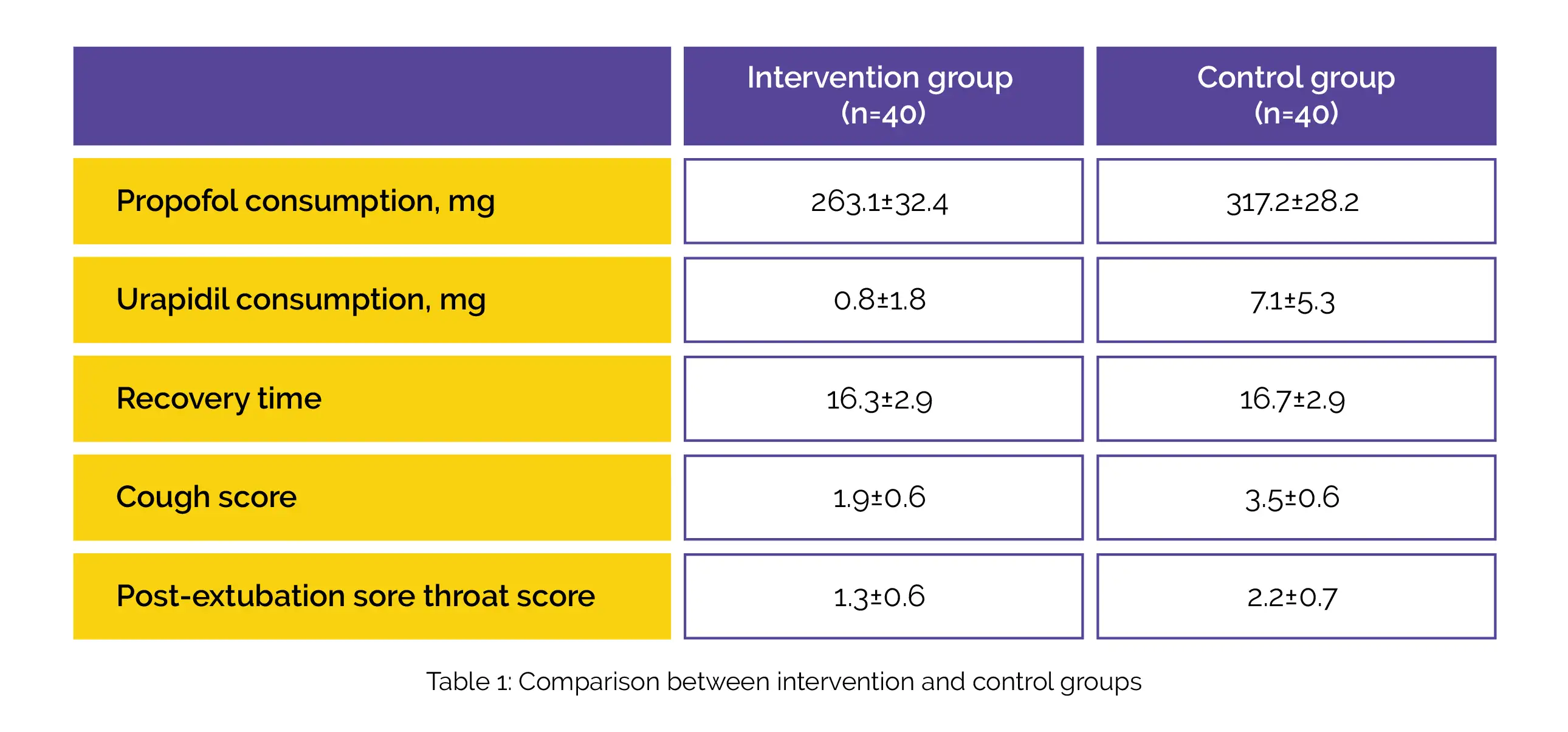Categories
Change Password!
Reset Password!


Infusion of lidocaine can decrease throat pain and intraoperative dosage of propofol in people with vocal cord polypectomy.
A randomized controlled trial depicted that the continuous intravenous target-controlled plasma infusion lidocaine can decrease propofol intake in people undergoing vocal cord polyp surgery. Furthermore, it is beneficial for hemodynamic stability, decreases coughing reaction in wake period, and lowers throat pain after extubation without eliciting adverse effects.
Investigators sought to find out the safety and effectiveness of general anesthesia-assisted lidocaine infusion in 80 people undergoing vocal cord polyp surgery using a supporting laryngoscope. Participants were randomly allocated into the intervention group (n=40) and control group (n=40). Both the groups were administered general anesthesia. In addition, the volunteers in the intervention were given an additional 3 mg/L of lidocaine via plasma infusion during anesthesia induction and maintenance.
Recording of heart rate, mean arterial pressure, throat pain score (estimated by visual analogue scale [VAS]) after extubation, adverse events, urapidil and propofol consumption, recovery time, and cough score during extubation was done. The hemodynamics were reported to be highly stable. Profound inter-group differences were detected in heart rate and mean arterial pressure instantly after intubation, instantly after the operation starting to support laryngoscope exposure, instantly after operation field adrenergic tampon hemostasis, and five minutes post-hemostasis.
Also, there were noteworthy differences in heart rate prior to intubation. In the study, the researchers witnessed considerable differences in cough score during extubation, propofol and urapidil intake, and throat pain score following extubation. But, there was no clinically meaningful difference reported in the recovery time, as shown in Table 1:

In addition, no adverse effects were noted in either group. Thus, the local anesthetic lidocaine effectively and safely minimizes throat pain and propofol need in individuals scheduled to undergo vocal cord polypectomy.
Medicine (Baltimore)
The effects of target-controlled infusion of lidocaine undergoing vocal cord polypectomy: A randomized controlled trial (CONSORT compliant)
LongYuan Zhou et al.
Comments (0)